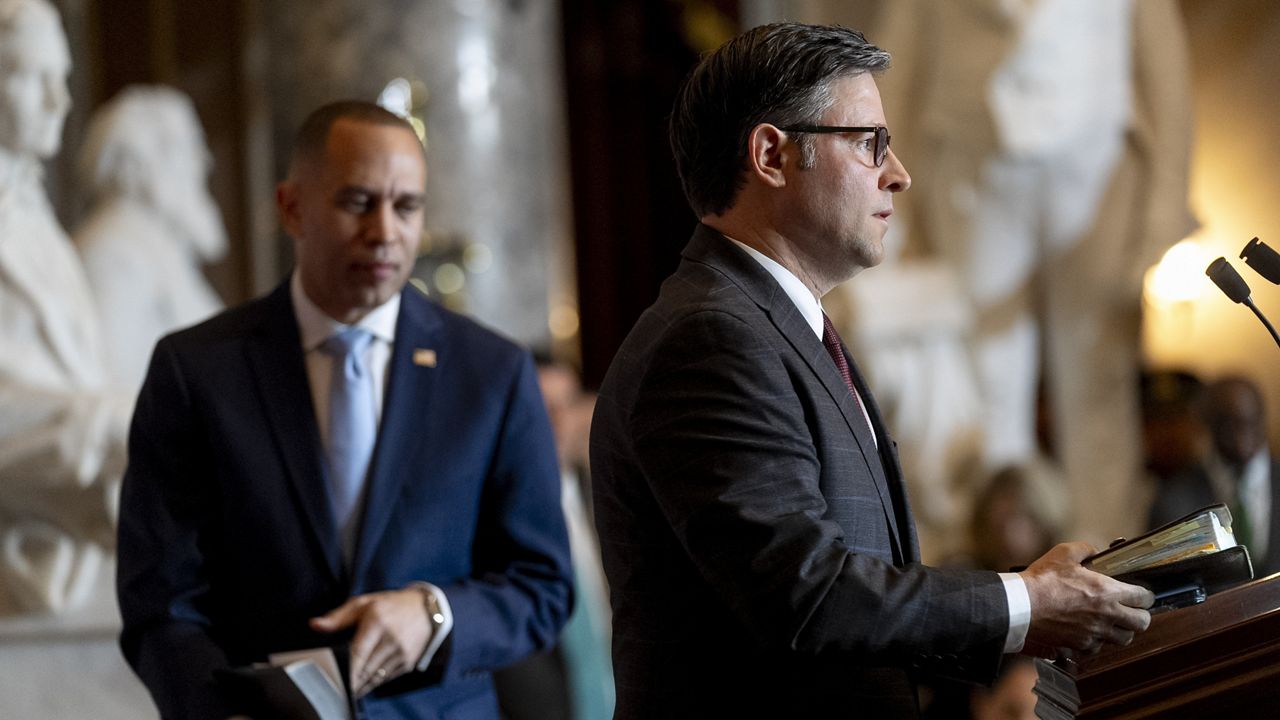The House is establishing a bipartisan task force focused on artificial intelligence, marking the lower chamber’s entrée into addressing the rapidly evolving field as Washington continues to grapple with how to respond.
Speaker Mike Johnson, R-La., and House Minority Leader Hakeem Jeffries, D-N.Y., announced the group’s creation on Tuesday.
A pair of California congressmen -- Rep. Jay Obernolte, a Republican, and Ted Lieu, a Democrat -- will lead the task force which will produce a report laying out recommendations and potential legislation Congress could pursue in the world of AI. The goal, the lower chamber’s two leaders said, is to ensure the U.S. remains a leader in the field while combating some of the dangers the field presents.
Johnson and Jeffries each picked a dozen members to sit on the 24-person task force.
“As we look to the future, Congress must continue to encourage innovation and maintain our country’s competitive edge, protect our national security, and carefully consider what guardrails may be needed to ensure the development of safe and trustworthy technology,” Johnson said in a statement.
“Congress has a responsibility to facilitate the promising breakthroughs that artificial intelligence can bring to fruition and ensure that everyday Americans benefit from these advancements in an equitable manner,” Jeffries added.
The topic of artificial intelligence exploded in Washington in the summer and fall of last year – triggered, in part by OpenAI CEO Sam Altman’s plea to lawmakers to regulate the technology during a Senate hearing in May, which ignited questions about how lawmakers should approach the field.
In the months following, Senate Majority Leader Chuck Schumer launched a series of AI forums, including one in the fall that saw some of the industry’s heaviest hitters, including Altman, X’s Elon Musk, Meta’s Mark Zuckerberg and Microsoft’s Satya Nadella, descend on Capitol Hill to brief the upper chamber.
At the White House, throughout the summer, President Joe Biden announced commitments from leading AI companies to follow safeguards. It all culminated with the signing of Biden’s executive order in October.
Despite the recent attention on regulation and lawmakers introducing several bills last year, legislation in Congress on the topic has not received much movement.
But concerns over the potential impacts of AI – particularly as it relates to elections – were reignited once again last month when a robocall featuring what appeared to be Biden’s voice generated through artificial intelligence discouraged voters in New Hampshire from participating in the state’s primary.
In response, earlier this month, the Federal Communications Commission made such calls illegal, allowing the FCC to fine companies that send out calls with AI-generated voices.



